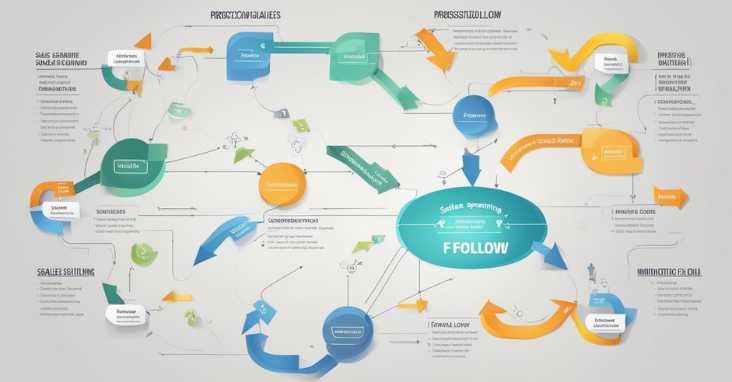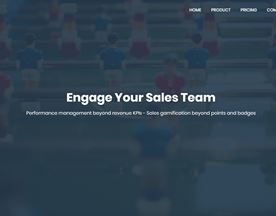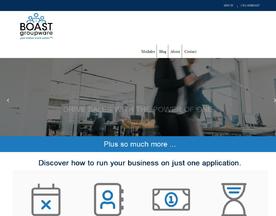What are the the strategies for successful enterprise sales ? Leverage strong relationships, tailor solutions, and use a consultative approach for effective enterprise sales success.
Enterprise sales is a complex and challenging field that requires a unique set of skills and strategies. It involves selling products or services to large organizations and businesses, often with multiple decision-makers and stakeholders involved in the buying process. Enterprise sales can be lucrative, but it also requires a significant investment of time, effort, and resources.

To be successful in enterprise sales, it is essential to have a deep understanding of the sales process and the unique challenges that come with selling to large organizations. This includes building relationships with key decision-makers, navigating complex buying processes, and leveraging sales tools and technologies to optimize the sales cycle. It also involves developing effective sales strategies and methodologies that can help you close deals and achieve your sales goals.
Overall, enterprise sales is a dynamic and ever-evolving field that requires a strategic and adaptable approach. By understanding the key principles and best practices of enterprise sales, you can position yourself for success and achieve your sales objectives.
Key Takeaways
- Enterprise sales requires a unique set of skills and strategies to sell products or services to large organizations.
- Effective sales strategies and methodologies can help you close deals and achieve your sales goals in this dynamic and ever-evolving field.
Understanding Enterprise Sales
Defining Enterprise Sales
Enterprise sales refer to the process of selling products or services to large companies or organizations. These sales are often complex and involve a long sales cycle. The sales are typically business-to-business (B2B) and involve selling to decision-makers at the enterprise level.
The Enterprise Sales Cycle
The enterprise sales cycle is a complex process that involves multiple stakeholders and a longer sales cycle than traditional sales. The cycle can take months or even years to complete, and it requires a strategic approach to ensure success. Understanding the enterprise sales cycle is critical to closing deals with large companies.
Key Characteristics of Enterprise Sales
There are several key characteristics of enterprise sales that differentiate them from other sales processes. Firstly, enterprise sales require a deep understanding of the customer’s business and industry. Secondly, enterprise sales require a consultative approach, where the salesperson acts as a trusted advisor to the customer. Thirdly, enterprise sales require a team-based approach, with multiple stakeholders involved in the decision-making process.
To succeed in enterprise sales, it’s crucial to have a deep understanding of the customer’s business and industry. Salespeople need to be able to identify the customer’s pain points and offer solutions that are tailored to their specific needs. Additionally, enterprise sales require a consultative approach, where the salesperson acts as a trusted advisor to the customer. This involves building relationships, establishing trust, and providing value beyond the product or service being sold.
Finally, enterprise sales require a team-based approach. Salespeople need to work closely with other stakeholders, such as product managers, engineers, and executives, to ensure that the solution being offered meets the customer’s needs.
For more information on enterprise sales, check out this article by Salesforce, a leader in enterprise sales.
The Enterprise Sales Process
Enterprise sales is a complex process that involves several stages and requires a deep understanding of the customer’s needs and challenges. The enterprise sales process typically involves a long sales cycle, multiple decision-makers, and a high value deal. In this section, we will explore the three main stages of the enterprise sales process: Discovery and Diagnosis, Development and Design, and Delivery and Deployment.
Discovery and Diagnosis
The first stage of the enterprise sales process is Discovery and Diagnosis. During this stage, the sales team works closely with the customer to understand their business needs, challenges, and goals. This involves asking the right questions, listening to the customer’s responses, and gathering information about their current processes and systems. The sales team should also research the customer’s industry and competitors to gain a deeper understanding of their business.
Once the sales team has gathered all the necessary information, they should analyze it to identify the customer’s pain points and areas of opportunity. This analysis should inform the sales team’s approach to the next stage of the enterprise sales process.
Development and Design
The second stage of the enterprise sales process is Development and Design. During this stage, the sales team works with the customer to develop a solution that meets their needs and addresses their pain points. This involves designing a proposal that outlines the solution, its benefits, and its implementation plan.
The proposal should be tailored to the customer’s specific needs and should be presented in a clear and compelling way. The sales team should also be prepared to answer any questions or concerns that the customer may have.
Delivery and Deployment
The final stage of the enterprise sales process is Delivery and Deployment. During this stage, the sales team works with the customer to implement the solution and ensure that it meets their expectations. This involves working closely with the customer to configure and customize the solution, as well as providing training and support.
Once the solution has been deployed, the sales team should continue to work with the customer to ensure that they are getting the full value from the solution. This may involve ongoing support, maintenance, and upgrades.
In conclusion, the enterprise sales process is a complex and challenging process that requires a deep understanding of the customer’s needs and challenges. By following the three main stages of the enterprise sales process – Discovery and Diagnosis, Development and Design, and Delivery and Deployment – sales teams can effectively meet the needs of their customers and close high-value deals.
Here is an external resource with more information on enterprise sales strategy.
Building Relationships in Enterprise Sales
Building relationships is a critical part of enterprise sales. It involves identifying and engaging stakeholders, cultivating long-term relationships, and understanding the role of the sales team.
Identifying and Engaging Stakeholders
In enterprise sales, identifying and engaging stakeholders is crucial. A stakeholder is a person or group of people who have an interest in the product or service being sold. It is important to identify all the stakeholders involved in the decision-making process and understand their needs and priorities.
Once the stakeholders are identified, the sales team needs to engage with them effectively. This involves building a rapport and establishing trust with the stakeholders. Communication is key, and the sales team should ensure that all stakeholders are kept informed throughout the sales process.
Cultivating Long-Term Relationships
Building long-term relationships is essential in enterprise sales. It involves understanding the needs and priorities of the stakeholders and ensuring that the product or service being sold meets those needs.
The sales team should focus on building a relationship with a champion, someone who is a strong advocate for the product or service being sold. The champion can help the sales team navigate the decision-making process and influence other stakeholders.
The Role of the Sales Team
The sales team plays a critical role in building relationships in enterprise sales. They are responsible for identifying and engaging stakeholders, cultivating long-term relationships, and ensuring that the product or service being sold meets the needs of the stakeholders.
The sales team should work closely with other departments such as marketing and customer support to ensure that the needs of the stakeholders are met. They should also continuously gather feedback from the stakeholders to improve the product or service being sold.
To learn more about building relationships in enterprise sales, check out this article by Salesforce.
Overall, building relationships is a critical part of enterprise sales. It involves identifying and engaging stakeholders, cultivating long-term relationships, and understanding the role of the sales team. By focusing on building relationships, the sales team can increase their chances of success and ensure that the needs of the stakeholders are met.
Sales Strategies and Methodologies

Crafting a Tailored Sales Strategy
Enterprise sales strategies require a tailored approach that takes into account the unique needs and challenges of each customer. To achieve this, sales teams must work closely with account executives and advisors to develop a mutual action plan that outlines the customer’s goals and objectives, as well as the steps required to achieve them.
A structured process is essential for crafting a tailored sales strategy. This involves conducting thorough research on the customer’s industry, competitors, and pain points. Sales teams must also have a deep understanding of their own product or service offering, as well as the benefits it provides to the customer.
To ensure success, sales teams must be flexible and willing to adapt their approach as they learn more about the customer’s needs and preferences. This may involve making adjustments to the sales pitch, pricing, or delivery model.
Account-Based Marketing and Sales
Account-based marketing and sales is a highly effective approach for enterprise sales. This involves targeting a specific set of accounts and tailoring the sales and marketing efforts to their unique needs and preferences.
To implement this strategy, sales teams must work closely with marketing to develop targeted campaigns that resonate with the customer. This may involve creating custom content, hosting events, or leveraging social media.
Account-based marketing and sales requires a high level of collaboration between sales and marketing teams. It also requires a deep understanding of the customer’s industry, pain points, and buying preferences.
Consultative Selling Approach
A consultative selling approach is another effective strategy for enterprise sales. This involves building a relationship with the customer and acting as a trusted advisor throughout the sales process.
To implement this approach, sales teams must focus on understanding the customer’s needs and pain points. They must also be knowledgeable about their own product or service offering and how it can benefit the customer.
A consultative selling approach requires a high level of empathy and communication skills. Sales teams must be able to listen actively to the customer and provide thoughtful, relevant solutions to their problems.
Overall, successful enterprise sales strategies require a deep understanding of the customer’s needs and preferences, as well as a willingness to adapt and adjust the approach as needed. By leveraging tailored sales strategies, account-based marketing and sales, and a consultative selling approach, sales teams can achieve success and drive growth for their organization.
Here is a resource that provides more information on sales strategies and methodologies.
Leveraging Sales Tools and Technologies

Effective enterprise sales require the use of sales tools and technologies to improve the sales process. These tools help in managing customer relationships, data analytics, and sales automation. In this section, we will discuss some of the essential sales tools and technologies that can help businesses achieve their sales goals.
Customer Relationship Management (CRM)
CRM software helps businesses manage their interactions with customers, streamline the sales process, and improve customer satisfaction. CRM software provides insights into customer behavior and helps sales teams identify new sales opportunities. It also helps businesses manage customer data, track sales progress, and automate routine tasks.
One of the best CRM software currently available in the market is Salesforce. It is a cloud-based CRM software that offers a range of features, including sales forecasting, lead management, and customer analytics. Salesforce also integrates with other sales tools, making it an ideal choice for businesses looking to streamline their sales process.
Data Analytics and Sales Intelligence
Data analytics and sales intelligence tools help businesses analyze customer behavior and identify new sales opportunities. These tools provide insights into customer preferences, buying patterns, and trends. They also help sales teams identify potential leads and optimize their sales efforts.
One of the best data analytics and sales intelligence tools currently available is InsightSquared. It is a SaaS-based analytics platform that provides real-time insights into sales performance, pipeline health, and forecasting accuracy. InsightSquared also integrates with other sales tools, making it an ideal choice for businesses looking to improve their sales process.
Sales Automation and Enablement Tools
Sales automation and enablement tools help businesses automate routine tasks, improve sales productivity, and streamline the sales process. These tools provide sales teams with the necessary resources to close deals quickly and efficiently.
One of the best sales automation and enablement tools currently available is HubSpot Sales. It is a SaaS-based sales automation platform that offers a range of features, including email tracking, lead management, and sales analytics. HubSpot Sales also integrates with other sales tools, making it an ideal choice for businesses looking to automate their sales process.
In conclusion, leveraging sales tools and technologies is essential for businesses looking to improve their sales process and achieve their sales goals. By using CRM software, data analytics and sales intelligence tools, and sales automation and enablement tools, businesses can streamline their sales process, improve productivity, and increase revenue.
Navigating Enterprise Sales Challenges

Enterprise sales can be a complex and challenging process, often involving long sales cycles, multiple decision makers, and high stakes. To successfully navigate these challenges, sales professionals must be equipped with the right strategies and tools. In this section, we will explore some of the common pain points, risks, and roadblocks that arise in enterprise sales, as well as strategies for addressing them.
Addressing Common Pain Points
One of the biggest pain points in enterprise sales is the complexity of the sales process. Sales professionals must navigate a complex web of decision makers, each with their own priorities, needs, and concerns. This can make it difficult to identify and address the key pain points of each decision maker, and can lead to a lack of buy-in and stalled deals.
To address this pain point, sales professionals should focus on building strong relationships with each decision maker and understanding their unique needs and pain points. They should also be prepared to provide targeted solutions that address each decision maker’s specific concerns.
Managing Risk and Uncertainty
Enterprise sales also involves a high degree of risk and uncertainty. Sales professionals must be able to navigate complex sales cycles, manage multiple stakeholders, and navigate potential roadblocks and objections.
To manage this risk, sales professionals should focus on building strong relationships with key decision makers and stakeholders, and developing a deep understanding of their needs and priorities. They should also be prepared to provide clear and compelling value propositions that address key pain points and demonstrate the ROI of their solutions.
Overcoming Roadblocks to Closing Deals
Finally, enterprise sales often involves a number of roadblocks and obstacles that can stall or derail deals. These can include objections from decision makers, budget constraints, and competitive pressures.
To overcome these roadblocks, sales professionals should be prepared to address objections head-on, and provide clear and compelling responses that demonstrate the value and ROI of their solutions. They should also be prepared to work closely with decision makers and stakeholders to identify and address any budget constraints or competitive pressures.
Overall, navigating enterprise sales challenges requires a combination of strategic thinking, relationship building, and a deep understanding of the needs and priorities of key decision makers and stakeholders. By focusing on these key areas, sales professionals can overcome common pain points, manage risk and uncertainty, and overcome roadblocks to closing deals.
Here is a link to an external resource that provides additional strategies and insights for navigating enterprise sales challenges.
Optimizing the Sales Cycle

In enterprise sales, the sales cycle can be a long and complex process that requires careful management in order to maximize success. By optimizing the sales cycle, businesses can improve their conversion rates and increase the number of qualified leads and opportunities they generate.
Shortening the Enterprise Sales Cycle
One of the key ways to optimize the sales cycle is to focus on shortening it. This can be achieved by streamlining processes, improving communication, and using technology to automate repetitive tasks. By reducing the time it takes to move a prospect through the sales cycle, businesses can increase their efficiency and close deals faster.
Improving Conversion Rates
Another important aspect of optimizing the sales cycle is to improve conversion rates. This can be done by developing a better understanding of the needs and pain points of prospects, and tailoring sales approaches to address them. By building strong relationships with prospects and providing them with the information they need to make informed decisions, businesses can increase their chances of closing deals.
Effective Prospecting and Qualification
Effective prospecting and qualification is also an important part of optimizing the sales cycle. By identifying high-quality leads and qualifying them early in the process, businesses can focus their efforts on the prospects most likely to convert. This can be achieved by using a combination of data analysis, targeted marketing campaigns, and personalized outreach.
To learn more about optimizing the enterprise sales cycle, check out this resource from Salesforce, a leading provider of enterprise sales solutions.
Closing Enterprise Deals

Closing enterprise deals requires a strategic approach that involves effective negotiations, crafting winning proposals, and sealing the deal with decision makers. Here are some key strategies to consider:
Negotiation Strategies
Negotiating enterprise deals can be complex and challenging. It requires a deep understanding of the client’s needs, priorities, and budget. The negotiation process should focus on creating a win-win situation for both parties.
One effective strategy is to identify the key decision makers and stakeholders involved in the deal. This helps to understand their interests and concerns, and tailor the negotiation approach accordingly. Another important aspect is to have a clear understanding of the value proposition and unique selling points of the product or service being offered. This helps to articulate the benefits and value of the solution to the client, and justify the price.
Crafting Winning Proposals
Crafting a winning proposal is crucial to closing enterprise deals. The proposal should clearly articulate the client’s needs, the proposed solution, and the expected outcomes. It should also address any potential objections or concerns that the client may have.
To create a compelling proposal, it’s important to conduct thorough research on the client’s business, industry, and competitors. This helps to identify the pain points and challenges that the client is facing, and tailor the proposal accordingly. The proposal should also include a detailed pricing and payment structure, as well as a clear timeline and deliverables.
Sealing the Deal with Decision Makers
Sealing the deal with decision makers is the final step in closing enterprise deals. This requires building strong relationships with the key stakeholders involved in the decision-making process.
One effective approach is to establish trust and credibility by providing relevant case studies, testimonials, and references. It’s also important to demonstrate a deep understanding of the client’s business and industry, and how the proposed solution can help address their specific challenges and pain points.
To increase the chances of success, it’s important to have a clear understanding of the decision-making process, and the key factors that influence the final decision. This helps to tailor the approach and messaging accordingly, and address any objections or concerns that may arise.
For more information on closing enterprise deals, check out this resource, which offers valuable insights and best practices.
Post-Sale Strategies

After closing a deal, it is important for enterprise sales teams to focus on post-sale strategies to ensure customer satisfaction and build long-term relationships. Here are some key strategies that can help:
Onboarding and Implementation
One of the most important steps in the post-sale process is onboarding and implementation. This involves getting the customer up and running with the product or service they have purchased. A smooth onboarding process can help ensure that the customer is able to quickly realize the benefits of their purchase, and can also help minimize any potential issues or concerns.
To ensure a successful onboarding process, it is important to have a clear plan in place that outlines the steps involved and the roles and responsibilities of both the sales team and the customer. This plan should be communicated clearly to the customer, and any necessary training or support should be provided to help them get started.
Account Management and Upselling
Once the customer is up and running with their purchase, the focus shifts to account management and upselling. Account management involves building a strong relationship with the customer and providing ongoing support to ensure their continued success.
Upselling, on the other hand, involves identifying additional opportunities to sell products or services to the customer. This can be done by understanding the customer’s business and identifying areas where additional products or services could have a positive impact.
To be successful in account management and upselling, it is important to have a deep understanding of the customer’s business and their goals and objectives. This can help identify opportunities for additional sales, as well as ensure that the customer is getting the most value from their current purchase.
Maintaining Brand Credibility and Trust
Finally, a key post-sale strategy is maintaining brand credibility and trust. This involves ensuring that the customer is satisfied with their purchase and that their needs are being met. It also involves being transparent and honest in all interactions with the customer, and addressing any concerns or issues in a timely and effective manner.
To maintain brand credibility and trust, it is important to have a strong customer service team in place that is responsive and knowledgeable. It is also important to regularly solicit feedback from customers and use this feedback to make improvements to the product or service.
Overall, post-sale strategies are critical for building long-term relationships with customers and ensuring their continued success. By focusing on onboarding and implementation, account management and upselling, and maintaining brand credibility and trust, enterprise sales teams can help ensure that their customers are satisfied and that their business is growing.
Here is an external resource that provides more information on post-sale strategies.
Enterprise Sales in Different Industries

When it comes to enterprise sales, different industries have different requirements and challenges. In this section, we will explore how enterprise sales operate in different industries and what strategies can be used to succeed.
Enterprise Sales in Technology
Technology is a rapidly growing industry with a vast range of products and services. Enterprise sales in technology require a deep understanding of the customer’s business needs and the ability to provide customized solutions. Sales teams need to demonstrate how their technology can help the customer achieve their goals and improve their business processes. A crucial aspect of enterprise sales in technology is building long-term relationships with customers.
According to a recent study by Gartner, enterprise sales in technology are shifting towards a more consultative approach. Sales teams need to be able to provide insights and guidance to customers, rather than just pushing products. This requires a deep understanding of the customer’s business and industry trends.
Adapting Sales to Various Market Sectors
Enterprise sales teams need to adapt their strategies to different market sectors. For example, selling to enterprise customers requires a different approach than selling to SMBs or mid-market companies. In enterprise sales, the sales cycle is longer and more complex, with multiple stakeholders involved. Sales teams need to be able to navigate these complexities and build relationships with decision-makers.
In SMB sales, the focus is on providing solutions that are easy to implement and cost-effective. Sales teams need to be able to demonstrate the value of their products and services, while also providing excellent customer service.
Mid-market sales require a balance between enterprise and SMB sales. Sales teams need to be able to provide customized solutions while also being cost-effective and efficient.
Case Studies and Industry Insights
Case studies and industry insights can be valuable tools for enterprise sales teams. They can help demonstrate the value of their products and services and provide insights into how they can help customers achieve their goals. Sales teams can use case studies to show how they have helped other companies in similar industries and provide real-world examples of their success.
Industry insights can also be valuable for enterprise sales teams. By staying up-to-date with industry trends and news, sales teams can provide valuable insights and guidance to customers. They can demonstrate their expertise and build trust with customers.
In conclusion, enterprise sales in different industries require different approaches and strategies. Sales teams need to be able to adapt to different market sectors and provide customized solutions. By using case studies and industry insights, sales teams can demonstrate their expertise and build long-term relationships with customers.
The Future of Enterprise Sales

As the business landscape continues to evolve, enterprise sales is also undergoing significant changes. In this section, we will explore the trends and predictions, innovation in sales processes, and adapting to market changes that will shape the future of enterprise sales.
Trends and Predictions
Market research indicates that the future of enterprise sales will be heavily influenced by technology. With the increasing popularity of artificial intelligence (AI) and machine learning, sales teams will be able to leverage data and analytics to gain valuable insights into customer behavior. Additionally, the rise of social media and other digital platforms will provide new opportunities for sales teams to connect with potential customers.
According to a report by McKinsey & Company, the use of AI in sales could increase revenues by up to 20% and reduce sales costs by up to 30%. The report also predicts that sales teams will increasingly rely on automation to streamline their processes and improve efficiency.
Innovation in Sales Processes
Innovation in sales processes will be a key driver of success in the future of enterprise sales. Sales teams will need to adopt new technologies and techniques to stay ahead of the competition. One area of innovation that is gaining traction is account-based selling, which involves targeting specific accounts with personalized messaging and content.
Another area of innovation is the use of virtual and augmented reality in sales. These technologies can provide immersive experiences for customers, allowing them to see products in action and visualize how they will fit into their own workflows.
Adapting to Market Changes
Finally, the future of enterprise sales will require sales teams to be agile and adaptable in response to market changes. With the increasing pace of innovation and disruption, sales teams will need to be able to pivot quickly to meet changing customer needs.
One example of this is the shift towards subscription-based models, which has disrupted traditional sales processes. Sales teams will need to be able to adapt to this new reality by focusing on customer retention and building long-term relationships.
In conclusion, the future of enterprise sales will be shaped by technology, innovation, and adaptability. Sales teams that are able to leverage these trends and respond to market changes will be well-positioned for success in the years ahead.
Here is a link to a report by McKinsey & Company on sales growth strategies.
Frequently Asked Questions

What are the key differences between enterprise sales and B2B sales?
Enterprise sales are typically focused on selling large-scale solutions to large corporations, while B2B sales are focused on selling products or services to other businesses. Enterprise sales involve longer sales cycles, larger deals, and more complex purchasing processes.
What strategies are effective for negotiating deals in enterprise sales?
Effective negotiation strategies for enterprise sales include understanding the customer’s needs and priorities, building strong relationships with key decision-makers, and demonstrating the value of the solution being offered. It’s also important to be flexible and willing to compromise to reach a mutually beneficial agreement.
What are the typical salary ranges for enterprise sales professionals?
According to Glassdoor, the average base salary for an enterprise sales professional in the United States is around $100,000 per year, with the potential to earn significant bonuses and commissions based on performance.
What qualifications and skills are required for enterprise sales positions?
Enterprise sales positions typically require a bachelor’s degree in a relevant field, such as business or marketing. In addition, strong communication, negotiation, and relationship-building skills are essential, as well as a deep understanding of the industry and customer needs.
How can one effectively train for a career in enterprise sales?
Effective training for a career in enterprise sales includes gaining experience in B2B sales, developing strong communication and negotiation skills, and building a deep understanding of the industry and customer needs. Many companies also offer training programs and mentorship opportunities for new hires.
What are the primary factors contributing to the profitability of enterprise-level sales?
The primary factors contributing to the profitability of enterprise-level sales include the size of the deals, the length of the sales cycle, and the ability to build long-term relationships with key customers. Additionally, effective pricing strategies and strong negotiation skills can also contribute to profitability.
For more information on enterprise sales, check out Salesforce’s guide to enterprise sales.
Compare hundreds of Sales Management Software in our Software Marketplace















